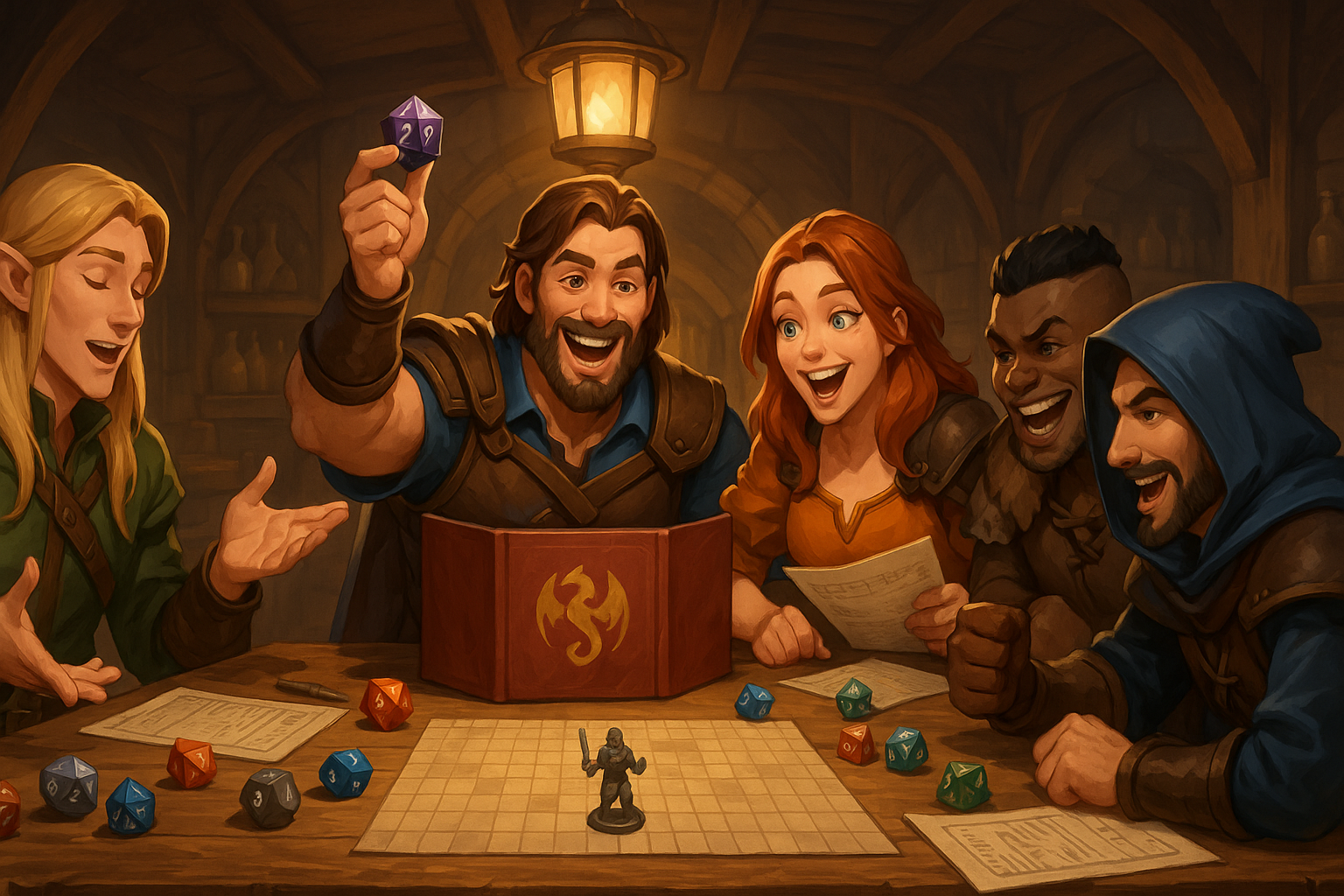Pride at the Table: How to Keep Confidence from Becoming Arrogance
By Moradin’s steady anvil, I love a player who knows their craft. The kind who walks in confident, sheet in hand, ready to sling spells or swing steel. Confidence can keep a table steady — until it tips over into arrogance, and suddenly the game’s about you instead of us.
And aye, I know yer thinkin’ — “Not me, Mike. I’m just passionate!” Passion’s grand, lad, but if you’re speakin’ more than you’re listenin’, you’re buildin’ a one-man show. And at a D&D table, that’s the quickest way to turn the rest o’ the party into unpaid extras.
Listen to Understand, Not to Reload
Too many folk listen like they’re waitin’ in line to talk. The GM says somethin’, you’re already pickin’ the clever thing you’ll say next. The rogue shares a plan, you’re calculatin’ how to improve it before they’ve even finished. That’s not listenin’ — that’s arm-wrestlin’ in your own head.
Real listenin’ means hearin’ the words and the weight behind ‘em. It means you’re curious about what they mean, not just how it affects you.
Ways to Listen Like a Pro:
Pause Before You Speak: Give a full beat after they finish. Shows you’re thinkin’ about their words, not just waitin’ for a gap.
Paraphrase Back: “So you’re sayin’ we skip the front gate and climb the wall?” Makes ‘em feel heard — and confirms you’ve got it right.
Ask for More: “What makes you think the guard’ll be asleep?” It draws out detail and respect.
Note Their Mood: A grumpy tone might mean they need support more than critique.
And aye, lad — this ain’t just “table manners.” It’s keeping the story alive. If voices ain’t heard, players stop sharin’. And when they stop sharin’, the game withers.
📌 Need a crash course in the strength of silence? Read The Strongest Character at the Table Is the One Who Listens — it’s proof that quiet players can shift the whole adventure.
Why Their Voice Matters More Than Yours
It ain’t about puttin’ yourself down. It’s about keepin’ the table in balance. In D&D, the more varied the voices, the richer the tale. One loud voice, no matter how clever, turns a feast into a single course.
Think of it like loot — if you grab it all, the rest o’ the party stops trustin’ you. But if you hand out the best bits, the party thrives. Respect works the same way. Give others the floor, and they’ll give you theirs when it’s your turn.
For a hard look at what happens when one voice takes over, see When the Loudest Player Starts Running the Table. It’s a cautionary tale for players and GMs alike.
Confidence Without the Swagger
Confidence is still good. You want players who’ll step up when the table freezes. But the best leaders in a party are the humble ones — the ones who’d rather the victory be remembered as “ours” than “mine.”
If you’ve been guilty of talkin’ over folk, don’t stew in guilt. Just start listenin’ more. If yer GM didn’t catch your last brilliant plan because you were lettin’ the wizard ramble, trust me — they noticed the courtesy.
📌 Want to practice humility without losin’ your spark? Take a look at Yer Not the Main Course, So Stop Hoggin’ the Spotlight for ways to share the stage without shrinkin’ into the shadows.
Final Toast
Confidence can inspire. Arrogance can poison. Learn the difference, listen more than you talk, and you’ll keep the ale flowin’ and the stories rollin’ without leavin’ bitter dregs in anyone’s cup.
If yer ready to take it a step further, pour yourself into When No One Agrees on What Winning Means — it’s all about aligning goals so pride fuels the game instead o’ breakin’ it.

